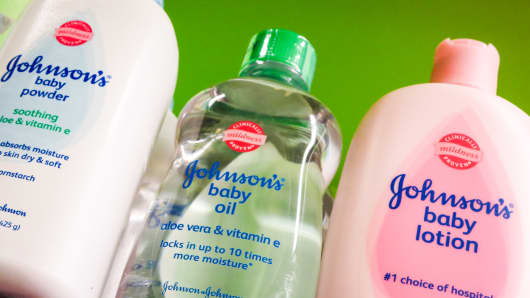Although Johnson & Johnson remains an undisputed force in health care, this has not been a flawless operation. The company's reputation is still in "recovery" after having dealt with some bad PR related to product recalls.
Now, there are new worries about Johnson & Johnson's organic growth. While I do believe these fears are overblown, J&J's first-quarter report didn't exactly reduce that level of distress, even though the stock price presumes "all is well."
As with J&J's fourth-quarter report, there were more missed opportunities in the first quarter although the company posted revenue of $17.5 billion, which grew 8.5 percent year over year, in line with expectations. However, as solid as the 8.5 percent growth appears, on an organic basis that number was slightly above 3 percent when adjusting out the contribution from Synthes, which J&J acquired last year.
More From TheStreet.com:
Berkshire's IMC Deal Highlights Buffett's International Hunt
All Amazon Does Is Execute
Apple Won't Let Investors Back In
While the Synthes deal has certainly nursed J&J's business back to health after some chronic pains, I'd admit it's unfair to discredit the company's overall performance, given that management had the vision to realize that Synthes would have been a great deal. Nevertheless, on an operational basis, with Synthes the revenue was up 10 percent. Domestic sales grew slightly above 11 percent, while international sales posted gains of more than 6 percent.
The Pharmaceutical business contributed handsomely this quarter, growing 11 percent on an operational basis year over year. Johnson & Johnson's flagship drugs, including Zytiga and Xarelto, were solid performers. However, the majority of the sales were domestic, outpacing international growth by more than two to one. This isn't cause for concern but a better balance would work wonders for organic growth.
Consumer sales were sedated, growing at just 2 percent year over year although sales were 1 percent better on an operational basis. Management attributed the positive results to over-the-counter products such as Tylenol and Motrin while also citing better uptake in baby care and skin care products such as Neutrogena.
(Read More: Cramer: Avoid This Drug Stock)
The Medical Devices and Diagnostics business, however, continues to be a major source of investor angst. Bulls are at ease that worldwide sales increased 14 percent year over year, including double-digit growth performances in both the domestic and international businesses. That's all well and good. And here, too, management's vision on the Synthes acquisition looks solid. But without Synthes, the Devices numbers are not as breathtaking.
Profitability was also mixed. Although there was a slight sequential improvement, margins continue to disappoint. After gross margins fell by 135 basis points in the fourth quarter, margins fell again this quarter by more than a full point, missing Street estimates. But management was able to offset this with a reduction in expenses, which helped advance operating income and earnings per share by 8 percent and 5 percent, respectively.
This quarter did little to damp any optimism about Johnson & Johnson's long-term prospects. In the near term, however, investors will likely remain nervous about J&J's organic growth while demanding improvements in the medical devices business. But it seems far-fetched to assume that management won't turn things around, given J&J's strong global presence.
What's more, Johnson & Johnson's strong drug business should keep growth going for the next several years. Management has done a better-than-adequate job over the past couple of years building the company's pipeline of products, many of which are now contributing to the bottom line. Zytiga and Remicade are perfect examples.
(Read More: Big Pharma Exit: Who's Fighting the Superbugs?)
But I wonder how J&J will respond to increased competition and further threats of weakening margins.
Companies including Medivation, which has a strong oral medication drug that rivals Zytiga, should not be taken lightly. This is where J&J's extraordinarily well-diversified business should offset potential near-term headwinds.
Bottom Line
Johnson & Johnson's valuation is the only thing preventing me from falling in love with the stock. However, take that away and you would be hard-pressed to find a safer pick in this market strictly from an operational and fundamental perspective.
While I have no doubt Johnson & Johnson should continue to put up decent growth numbers (on a relative basis), I'd feel much better if margins were on the opposite trajectory.
Johnson & Johnson's not a great buy at this point, but the stock's an excellent hold.


